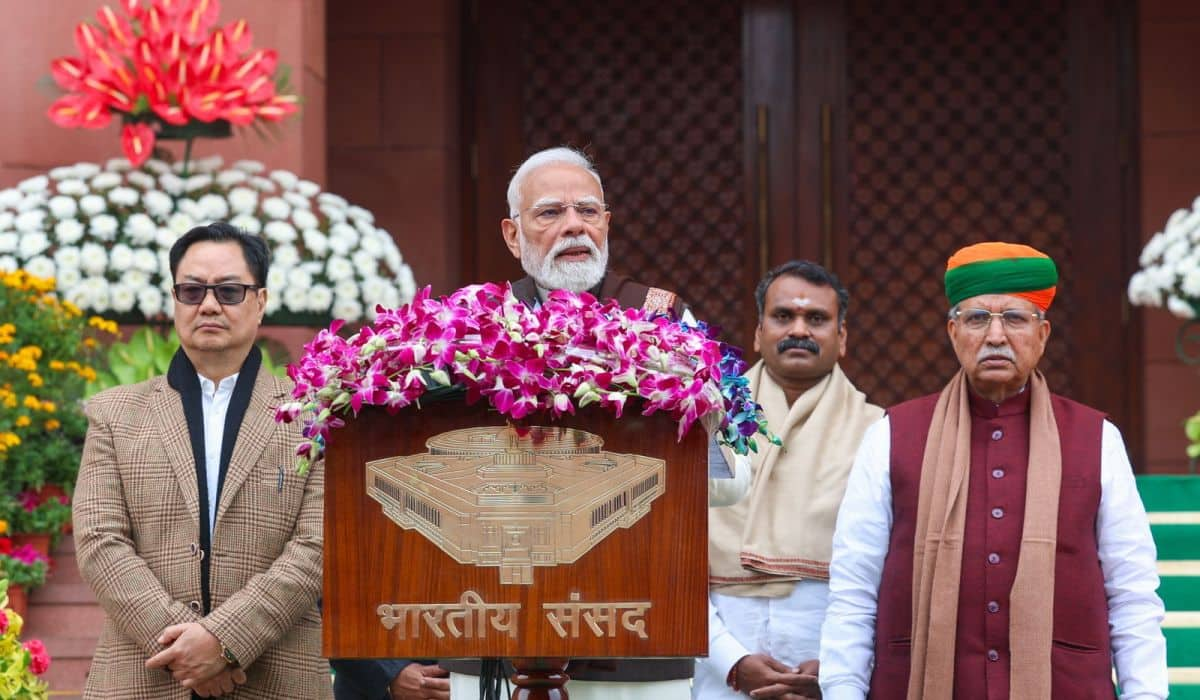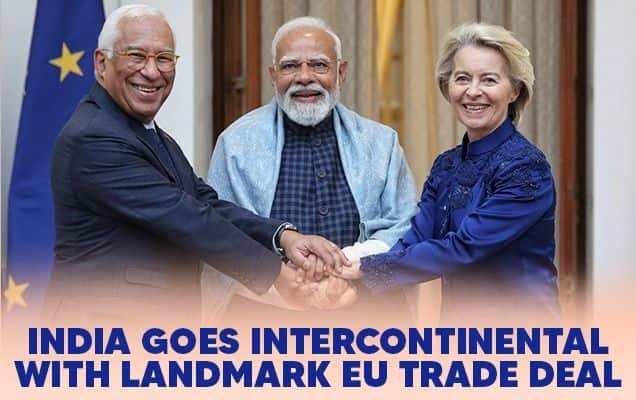On the afternoon of Friday 20th December 2013 Shri Narendra Modi addressed the Vijay Shankhnaad Rally in Varanasi. There was unprecedented enthusiasm among the people at the rally as lakhs of Karyakartas, supporters and people from all walks of life joined the Rally to hear Shri Modi and the other BJP leaders. Also present during the rally where BJP President Shri Rajnath Singh and former HRD Minister and current Lok Sabha MP from Varanasi Dr. Murli Manohar Joshi. Shri Narendra Modi assured the youth of the nation that the BJP is committed to ensuring a bright future for them and that if a Government cannot guarantee the future of the youth, it cannot guarantee anything for the nation.
Shri Narendra Modi challenged the conventional wisdom that Uttar Pradesh is important only due to the number of MPs is sends to Parliament. He said that what is more important is the development of the state. Shri Modi affirmed, “It is said that without UP no government can be formed. This thought is an insult to UP. Is the importance of Uttar Pradesh only to increase numbers in Parliament? Is UP only about making governments? My thoughts are not so narrow. I do not think of UP merely on the basis of the MPs it sends. This state can be the engine of India’s development.” He added, “If India wants development and stability, it cannot happen without UP. For us, Uttar Pradesh is not a political playground but the most important land for India’s development.”

He commented on the poor governance in UP due to which the poor, the farmers and the youth are suffering. Shri Modi said, “Farmers of this land has the capability to fill the stomach of so many people but the farmer of this land is unable to fill his own stomach. See the government you have. How does a farmer feel when he knows that grains are rotting? This is not only an economic loss but also touches the heart of the farmer. The Honourable Supreme Court says give grains to the poor the government lets it rot and gives it to alcohol manufacturers. What the Government is doing is an insult to the farmer and making a mockery of the poor.”
Attacking the political culture of paying lip service to the poor, Shri Modi declared, “When elections come they keep talking about poor poor poor poor. But, if there is someone responsible for India’s poverty, it is one family.” Recalling his own experience of poverty Shri Modi said, “I have spent my childhood in poverty. I do not need to go to the houses of the poor to see what poverty is.” Reacting to the negative and deeply personal attacks made against him, Shri Modi affirmed, “One UPA leader calls me a tea-seller but I ask you all- is it a crime to stand on one’s own feet and make ends meet? Anybody who is blessed by the people can become the Prime Minister irrespective of what he or she does.
Hume Chai Bechna Manzoor Hai, Desh Bechna Nahi (It is acceptable to see tea but not acceptable to sell the nation).” Shri Modi urged the poor people to uproot those who have exploited them for years. Answering the statements made by a senior Congress leader who called the BJP a Party of thieves Shri Modi opined, “Yes, we are thieves, we have stolen the sleep of the Congress Party.”

Shri Modi expressed concern at the state of the Ganges River. He stated, “
For others the Ganga can be a river but for us it is our Mother. Ganga Paani Ki Dhara Nahi, Sanskriti Ki Dhara Hai (Not only water but also our culture flows in the Ganges). The UPA made a scheme to clean the Ganga, a lot of campaign was done and the people thought they would see a difference. But I want to say that in the last five years except meeting three times no step was taken by the Centre. The people of India want answers from the government on what they have done to clean the Ganga.” Shri Modi urged the people to uproot those who have fooled the nation in the name of the Ganga. “Those who could not manage the Ganga, how can they manage the nation? To purify the nation we have to make Delhi and Lucknow pure first,” said Shri Modi.
Referring to those people who keep asking him what his “vision” is Shri Modi replied that he does not come with mere promises but with ideas and determination (
Hum Wade Nahi, Irade Lekar Aayien Hain). Shri Modi asked all those who ask what his “vision” is to come spend some time in Gujarat, see the transformation of the Sabarmati River. Shri Modi also spoke about the decline of Varanasi’s Sari sector and pointed out how the similar sector in parts of Gujarat was not allowed to fall into decline like this. He even spoke about how the Gujarat Government used technology and make recruitment of teachers totally transparent while in several parts the focus is more of “sepharish” than merit.
Shri Modi further pointed out that these elections are not being fought by any party or by any leader but it is the people who are fighting the elections. He said that the people of India are eager to uproot the Congress-led UPA Government at the Centre.




















